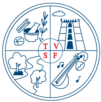In recent years music therapy is emerging as a scientific discipline, dedicated to prudent use of sounds and rhythms for individual health as well as for overall human welfare.
Music as we all know is a series of sound vibrations, consisting of compressions and rarefactions.
Through a process called synchronization, these vibrations pervade into the very core of our body.
When prudently administered, they are capable of transforming our thinking process, mood compositions and attitudinal traits and in consequence our behaviour towards ourselves and others.
A powerful, but flexible approach to life is what all we gain in life with music. But in terms of its usefulness, what we gain is much more than whatever the best, life has got in store for us!
Music can brighten us when we get dull or depressed. It may even slow down our mental pace, when the mind becomes overactive with unhealthily selfish thinking mode.
Scientific research conducted in recent years, goes to show how rhythms in music could coincide with those in the human brain altering the neuro-physiological functions and thereby our health and wellbeing.
Music has long since been scientifically established as a safe alternative tool, in the armoury of physicians, for fighting many a battle of sustenance or survival.
Self-Music Therapy: The Procedure
A trained music therapist acts primarily as a facilitator for diagnosing the health conditions and for prescribing musical inputs, treatment schedule such as timings and duration etc., in a therapeutic setting using well-intended music.
However, it may not be always possible to position a music therapist next to a patient 24 hours a day and 7 days a week. The next best course therefore would be to train the patient himself or herself on the basics of music and infuse enough confidence in them to be responsible for their own health and perhaps eventually, for that of their family and their community.
How beautifully independent and responsible a socially-rejected man or woman, lonely, aged, infirmed, traumatized or terminally ill would feel if he or she comes to know that they can be responsible not only for their own healthy behaviour, but also for their kith and kin! After all, it is the feelings of responsibility that transform an ordinary Siddharth into a Buddha and the next-door Mohan das into a Mahatma! Music, nevertheless, is never a full-fledged medicine. It can be at the most, a proto-medicine which in combination with other forms of medicine and intervention can prove medically useful.
While conventional medicine treats the body organs as the “automobile” parts, music gives the requisite human touch – a sense or care, concern — which is like prana, life – sustaining. As rhythms in music resonate with one’s heartbeats, the feelings cached in music elevate his or her level of moods, reshaping a person from a computer-prompted robot to a ‘healthy’ human being, prompted and pampered by love and inner joy.
This article was published in My Doctor – May 2005 – Pages 45, 46
Edited by Geeta Shreedar, March 30, 2021
